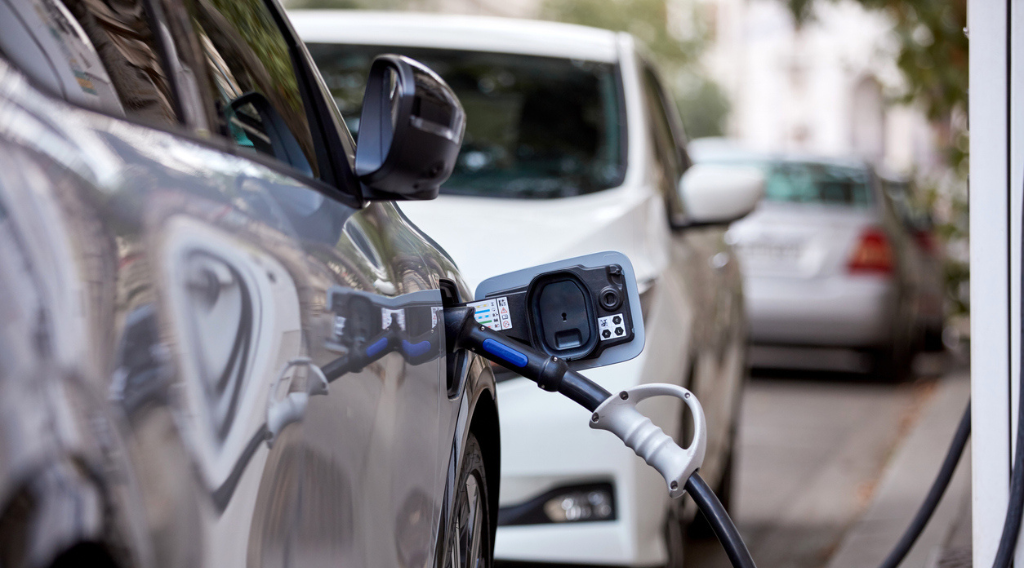 Access to utility energy data will play a critical role in the level of success communities achieve in shaping their energy future. That’s why the Great Plains Institute, with our partners and other stakeholders, identified opportunities to improve availability of electric utility data at the community-level and developed a data protocol as a resource for communities.
Access to utility energy data will play a critical role in the level of success communities achieve in shaping their energy future. That’s why the Great Plains Institute, with our partners and other stakeholders, identified opportunities to improve availability of electric utility data at the community-level and developed a data protocol as a resource for communities.
Communities all over the country are setting renewable energy and greenhouse gas emission reduction goals and taking steps to make these goals a reality: developing action plans, adding solar panels to government buildings and electric vehicles to fleets, subsidizing community efficiency programs, and much more. Minnesota cities and counties are part of this growing momentum in communities to shape their energy future. Minneapolis, St. Paul, St. Louis Park, Northfield, and many others have already completed or are in the process of developing climate action plans. In an initial review of 100 recently developed metro area comprehensive plans, about a third of the plans include energy goals (see Figure 1).
Figure 1. Initial review of 2019 Twin Cities metro area comprehensive plan

Source: Metropolitan Council, 2019.
Successful implementation requires good data
As cities and counties in Minnesota set out to implement their goals, it is important to underscore that the success of their plans will be closely tied to the quality of the data on which they are based. Energy plans start with an understanding of a community’s current energy use and emissions profile. That energy data is readily available for some Minnesota communities, but hard to come by for others. For example, Minnesota’s Regional Indicators has multiple years of energy use and emissions data for almost 30 cities and Xcel Energy posts community energy data for a number of communities inside their service territory. For other jurisdictions, it can be hard to find data and make sense of what they are able to get.
Addressing the data gap
In 2018, the Great Plains Institute (GPI) began work on development of a statewide Minnesota Utility Energy Registry to address this problem. GPI was the Minnesota project lead, with support from LHB and the Minnesota Department of Commerce. The goal was to develop an online platform for utilities to easily and voluntarily post city and county electric and natural gas consumption data. The intent was to streamline and standardize data access for local governments, researchers, and interested members of the public and to make it easier for utilities to respond to the increasing number of one-off data requests. The project was done in partnership with the states of New York, Maryland, and the Washington, DC Council of Governments. The New York State Energy Research and Development Authority led the effort with funding from the US Department of Energy’s Office of Energy Efficiency and Renewable Energy’s State Energy Program through their 2016 Competitive Funding Opportunity Announcement. The vision is to eventually have a national Utility Energy Registry, making energy data easily accessible to all US cities.
New utility energy data protocol developed
In Minnesota, the project resulted in a data protocol developed with extensive input from potential data users and utilities. The Metropolitan Council, which is the regional policy-making body, planning agency, and provider of essential services for the Twin Cities metro region, will use the utility energy registry data protocol in their work developing a Twin Cities seven-county greenhouse gas inventory. The research team at the council’s Community Development Division will be posting electricity and natural gas-related emissions data as a part of other planning resources they provide to area local governments. The council plans to make greenhouse gas emissions data available in their website by the fall of 2019 and other resources to support communities will follow once the inventory is ready.
The Minnesota protocol was developed by GPI and subcontractor LHB with extensive input from many people and organizations representing a range of perspectives. A statewide stakeholder group of 35 people met twice in 2018. The group included representatives of local governments, utilities, academic researchers, consumer advocates, business interests, and nonprofit organizations. A technical work group of utility representatives took the stakeholder data wish list and honed it to items for which utilities can provide accurate and consistent data.
The result is a Minnesota-specific protocol (download protocol) that includes detailed guidelines for electricity and natural gas utilities to submit the data in a format that is most helpful to communities. The protocol is designed so that it is feasible for a utility to deliver the data and addresses a utility’s technical capabilities and internal procedures. The protocol is capable of accommodating different geographic scales (from zip codes to counties), as well as different time frames, and multiple sector aggregation, which allows utilities to report at a scale at which they have determined will protect customer privacy.
The Minnesota data protocol, along with that from Maryland and Washington, DC will be posted on a national Utility Energy Registry website. A link is not yet available, but we will update this blog when it is published. The New York State program is up and running, with utilities reporting data biannually, as required by the New York Public Service Commission.
Challenges to getting a statewide utility energy registry webpage up and running in Minnesota and Maryland include the lack of an entity with the resources to manage and maintain it over time. In addition, a lack of clear commission guidance on data privacy standards has resulted in uncertainty and concern about the best way to protect individual customer data, how data will be used, and by whom.
Legislation pending in 2019 holds some promise for clarifying the questions of data privacy and usage of customer electric and natural gas data. Minnesota H.F. 1683, which has been incorporated into the House energy omnibus bill, would require utilities to provide individual customers with their energy data, clarify access to building level and community level data, and standardize data privacy.
For more information:
- Contact Lola Schoenrich about the Minnesota Utility Energy Registry
- Contact Mauricio Leon on the Metropolitan Council Regional GHG inventory
- Contact Becky Alexander, LHB on the Regional Indicators
Keep up-to-date with the latest from GPI by signing up for our monthly Better Energy newsletter.


